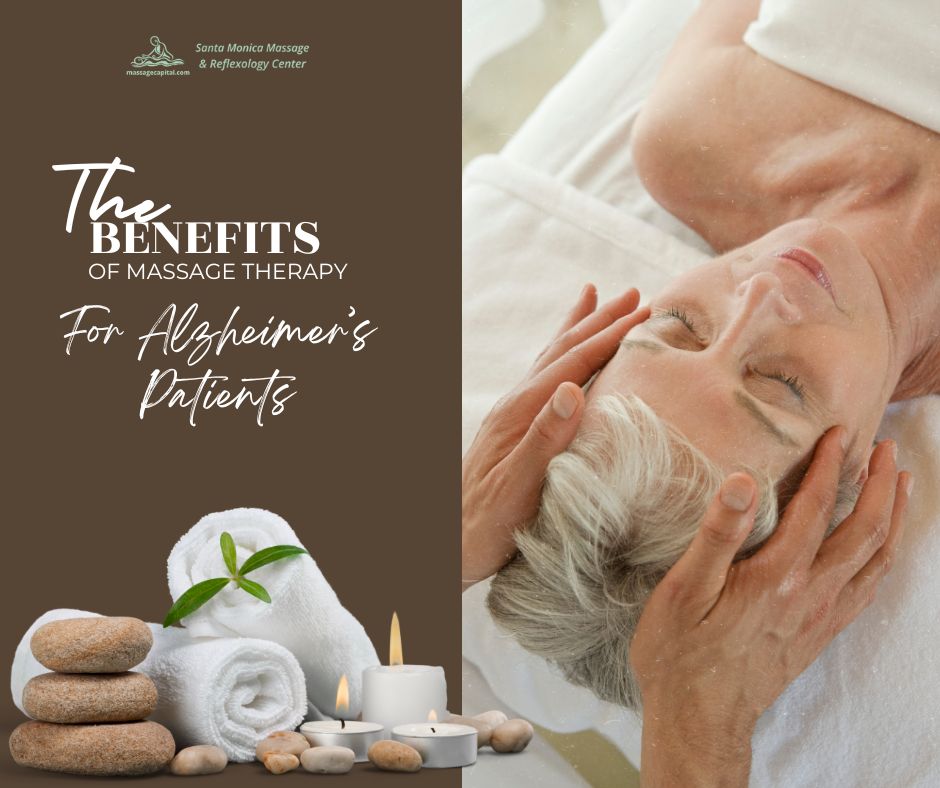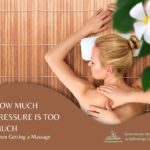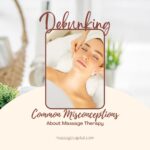Massage Therapy and Alzheimer’s Patients: A Closer Look
People have various perceptions of massage therapy. Some people think it involves pampering sessions that destress and rejuvenate; others think that they encourage better muscle movement and are great for people who exercise or play sports a lot. What they don’t imagine Santa Monica massage therapy to be, however, is something that can benefit the elderly population, particularly the ones with Alzheimer’s disease.
In this article, we’ll be taking a closer look at how massage therapy can work to fight off Alzheimer’s disease.
Demographics
With many advancements in today’s medical technology, life expectancy worldwide has increased. According to the Administration for Community Living (ACL), there are around 54 million people aged 65 years and above in the United States. Of these 54 million people, 6.5 million live with Alzheimer’s disease, and according to the Alzheimer’s Association, this number is estimated to increase to 13 million by the end of 2050.
Soon, more people with Alzheimer’s will be and should be benefiting from massage therapy.
Therapeutic Benefits
While Alzheimer’s patients may have a steady decline in their memory and logical skills, they don’t lose their need for human touch. However, some caregivers and family members are hesitant to touch their loved ones for various reasons—perhaps they’re afraid of startling them or don’t want to injure them inadvertently. Whatever the case, a lack of human touch among elderly patients (not just ones with Alzheimer’s) leads to feelings of loneliness, social isolation, and poor trust in the people around them.
Massage therapy has numerous therapeutic benefits for elderly patients. It helps build trust between the patient and caregiver, reduces agitation and restlessness, communicates acceptance and worthiness, and eases any physical pains due to medical conditions.
Research
There has been some scientific research about the effects of massage therapy on people with Alzheimer’s.
For example, Hansen, Jorgensen, and Ortenblad (2006) did a study on the effects of a hand massage on common issues with Alzheimer’s patients, such as anxiety, agitation, and depression. They concluded that hand massages encouraged the short-term reduction of these behaviors in Alzheimer’s patients and suggested that incorporating massages into their care can improve their emotional and behavioral well-being.
They also admit that more research needs to be done on the matter. While true, what little research we have already suggests that massage therapy can be very beneficial for elderly patients, especially ones with Alzheimer’s!
What Massage Therapists Need to Know About Alzheimer’s Patients
Understanding what Alzheimer’s disease is and how it affects the elderly population is very important for massage therapists. They need to know how to personalize their sessions as they can be vastly different from the usual.
At our massage therapy center in Santa Monica, here are general guidelines our therapists need to follow:
Alzheimer’s Patients are Different from Others
Because of the toll Alzheimer’s disease has on the elderly, massage therapists should expect behaviors that are out of the ordinary. They need to have special skills to deal with things like memory loss, disorientation, personality changes, and more that can disrupt the session if not dealt with properly.
For example, a person with Alzheimer’s might forget they’re getting a massage halfway through and become very confused and startled. In this case, the therapist should gently remind the person that they were getting a massage, ask if they’re still comfortable with it, and overall, just consider their feelings.
Alzheimer’s Patients Need More Emotional Connections
Massage therapists will soon realize that massage therapy for Alzheimer’s patients involves a lot more empathy and emotional connections. As a population that largely craves human touch and interaction, elderly patients are more receptive to massages that make them feel seen and heard.
For example, you might want to consider asking permission before doing anything like applying lotion. Elderly patients value their independence and would appreciate this a lot. While you’re asking permission, hold their hands and look into their eyes—this establishes a connection between the two of you and focuses their attention on the massage. After the massage, thank them for the experience while still holding their hands and maintaining eye contact.
Simple gestures like these can make the experience more enjoyable for them.
You Need to Be More Careful Around Alzheimer’s Patients
Take care when working with these people. Elderly patients have more weakened bodies, so massage therapists need to take precautions before every massage.
For example, elderly patients tend to have more delicate immune systems and get sick more easily. So, wash your hands thoroughly before and after every massage. Additionally, their skin is a lot thinner and bones more fragile—you’ll want to adjust your massage pressure accordingly.
Interested in Massage Therapy for Your Loved One?
Now that you’ve realized the awesome benefits of massage therapy for your loved one, it’s time to plan out your session. Luckily, many nursing homes already offer massage services, so why not check with them to see if it’s something they provide? If it isn’t, there are plenty of massage therapy clinics out there you can choose from.
For those living in Santa Monica, Massage Capital is your go-to place. We offer plenty of services, including massage therapy, reflexology, aromatherapy, and plenty others. Before booking a session, make sure to contact us at (310) 928 9851, info@massagecapital.com, or through our website here to let us know what you’re looking for and how we can serve you.
We look forward to helping your loved ones with Alzheimer’s disease and touching their hearts with our gentle touches.







